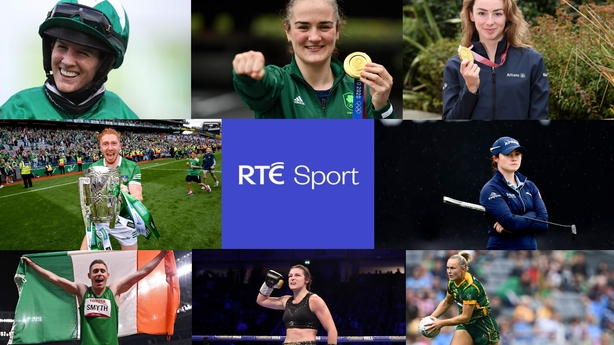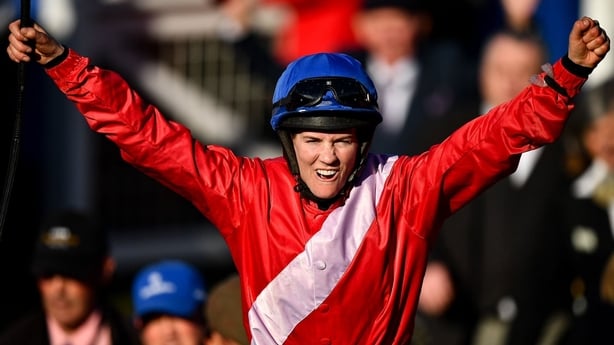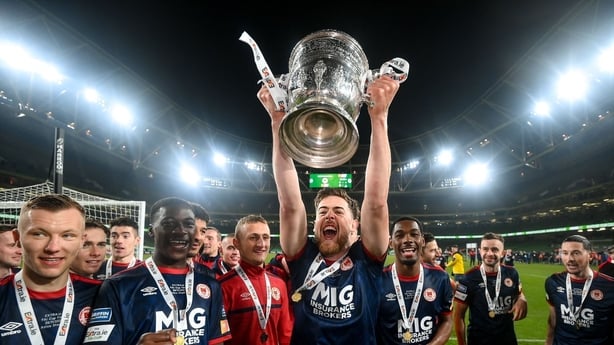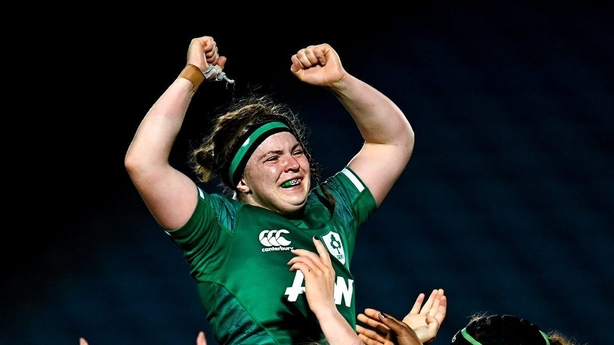One unexpected effect of the global pandemic, among many, was the way it forced us all to appreciate things we'd taken for granted: in the sporting world, we lamented the loss of that collective experience in the dying moments of a great match. We missed the excitement of the journey, to Clones or Croke Park or the Curragh. We yearned for that collective dissection of the game.
Throughout 2020-2022, live sport spluttered, stalled, stopped and started again. Amid a global pandemic when lives were altered and lost, two simple things were enough to give many of us hope – the re-opening of schools, and the return of live sport.
For so many of us, sport is not just what we do, it’s part of who we are. For a huge swathe of the Irish population, sport in its various forms and codes and grades is our go-to escapism. That’s why RTÉ Sport has always been central to our life journey. From Seamus Darby to Dawn Run to Roy Keane - north, south, east or west, we live and breathe sport as a core part of our lives.

In those same two years RTÉ Sport broadcast the Olympic Games, Euro 2020, the Paralympic Games, over 100 live GAA matches, over 120 live soccer matches, and over 70 live rugby matches. We brought you the Irish Open golf, show-jumping, hockey, rowing, and the national athletic and swimming championships. In conjunction with GAAGO we also brought 150 live League of Ireland games, alongside GAA games, to people who simply were not allowed attend venues. For some, there were things that weren’t perfect, aspects that they disagreed with and elements that they wanted more of. But RTÉ was there when times got tough, for you, for the participants, and the sporting federations.
RTÉ is not immune from nor above criticism. RTÉ cannot and should not have a monopoly on sporting rights, but sport is core to RTÉ’s public service remit because sport is core to our national identity. RTÉ must reflect Ireland, but not be limited to Ireland. Ireland’s greatest sporting ambassadors in the last two years were global and international stars not restricted by lines on a map. Their efforts and endeavours put Clara, Killenaule , Skibbereen and north inner city Dublin on the international sporting landscape. Sport fuelled a nation’s pride and saw us stand talL not just amid but often above bigger nations. RTÉ captured those moments across television radio, online and social. The drama, the agony, the ecstasy, the reality.

Sport is not just reflecting change in Ireland, it is driving change. Sport is a unique filter through which we can see where we are, as a people and culture, on equality and inclusion. Rachael Blackmore is no longer the best female jockey; she is simply the best jockey. Together with Kellie Harrington, Leona Maguire, Ellen Keane, the Dunleavy McCrystal duo and many others, they are simultaneously fulfilling their own dreams and creating an environment whereby globally successful Irish female sporting role models are now the norm rather than the exception.
We live in a world obsessed with borders and boundaries, and ironically in the grasp of a global pandemic that itself knows no boundaries. Sport sometimes embraces and magnifies those parish boundaries and county lines, and we thrive on the moments that see us get one over on the neighbours at club, county or provincial level. The GAA club championship, the ultra competitive national leagues and the interprovincial URC have all formed a central plank of RTÉ’s regional coverage over the past two years. The return of these competitions to RTÉ, together with the League of Ireland, is reflective of and resonant with every county across the island. Sport is in our DNA; it stirs our emotions, fuels our passion and brings us joy and heartbreak. It is also inter-generational and is often the common bond that unites us as a family, a community, a county and a nation.

As parents, we moderate the content our children consume. Sport is unique however: the pain of defeat, the cruelty of loss and the exhilaration of victory is a shared experience from 8 to 80 years; we can consume it together and live in that moment. That is why we sought and engaged in partnerships with other broadcasters, including Virgin Media, TG4 and BBCNI, to ensure key sporting moments across multiple codes remained free to air, free to access and free to enjoy.
RTÉ, as the national broadcaster, acquires, broadcasts, dissects, analyses and scrutinises the moments that unite us and that form the images and sounds of our collective memory bank. We have a long and proud tradition in doing so: Ciaràn Fitzgerald’s call for pride, Barry McGuigan in Loftus Road, Ray Houghton in Stuttgart, Ronan O’Gara in Cardiff, Sonia O’Sullivan in Sydney and Katie Taylor in London. Such memories never leave us but the rear view mirror is now in sharp focus: Kellie in Tokyo, the Skibbereen crew, Katie McCabe, Jason Smyth and David Clifford. From Portland Row to Fossa, the role, the responsibility and the onus is on RTÉ to hold up the mirror to ourselves as a nation, and to show us our heroes, our idols, our role models.

RTÉ is evolving. It exists amid increasing demands, on people, resources, finances and time. The mirror never stops reflecting. The Women’s Euros, the GAA Championship and the World Cup in Qatar loom large in the coming months to enable us extend our collective engagement with the great sporting moments. The next generation, the new generation, are already banging the door down. Gavin Bazunu , Rhasidat Adeleke, Beibhinn Parsons, Rhys McClenaghan are just some of those who will inscribe their names on the Irish sporting roll call in the months and years ahead. And RTÉ will continue in our public service remit to reflect their endeavours. It’s what is expected, it’s what is demanded, and it’s what we do. The task is not easy but it remains a privileged position, then, now, and, I hope, into the future.


